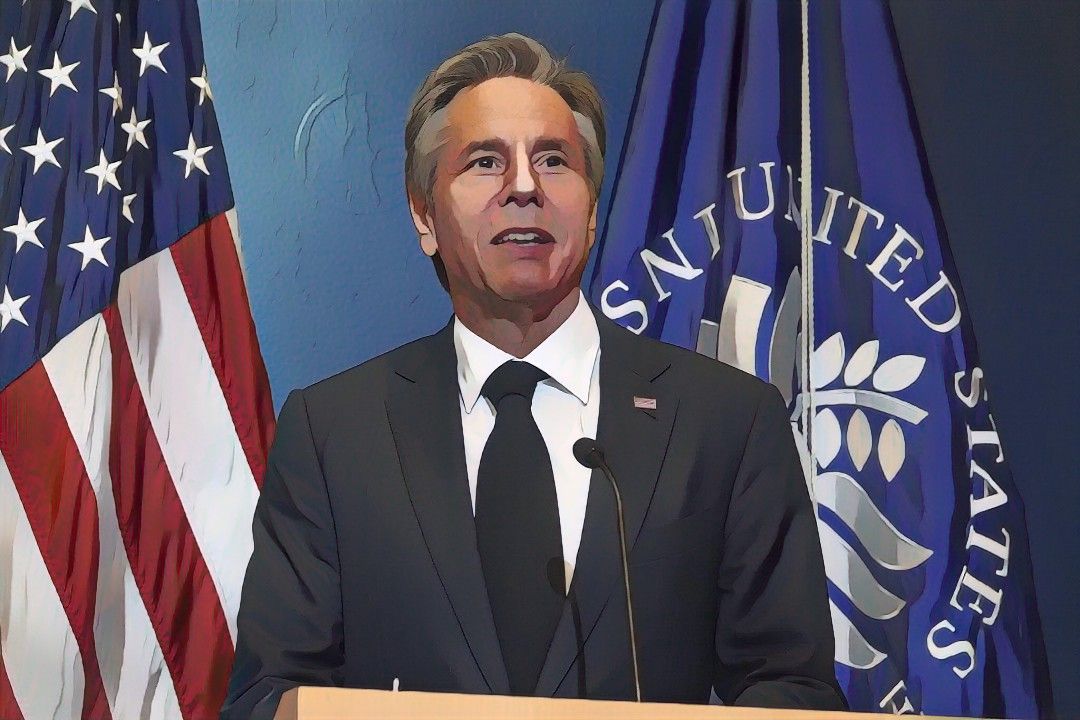Secretary of State Blinken Meets with Counterparts and Chinese President on Beijing Visit

The Lede: U.S. Secretary of State Antony Blinken met with Chinese President Xi Jinping and other senior officials on a visit to Beijing. It was the first trip to China by a U.S. secretary of state since 2018, and the highest-ranking U.S. official visit to China since the start of the Biden administration.
What We Know:
- From June 18 to June 19 U.S. Secretary of State Antony Blinken visited Beijing amid heightened tensions between the two superpowers. He met with Chinese President Xi Jinping, Chinese Foreign Minister Qin Gang, and China’s top diplomat Wang Yi. U.S. President Joe Biden monitored the trip and received regular updates.
- The visit was based on a mutual recognition that the U.S.-China relationship had become unstable. Blinken raised concern over the Taiwan Strait, noting that the U.S. position on Taiwan’s status has not changed and that the U.S. does not support Taiwan's independence. Aside from direct bilateral topics, Blinken discussed the Russia-Ukraine War and North Korea, as well as human rights violations, economic ‘de-risking’ and cooperation on controlling the flow of fentanyl. Progress was not made on restoring military-to-military communications.
The Background: Earlier this year, Blinken postponed what would have been his first trip to China after diplomatic channels soured due to an incident involving a Chinese spy balloon over U.S. territory. CIA Director William Burns, national security advisor Jake Sullivan, Commerce Secretary Gina Raimondo, and Trade Representative Katherine Tai have met with senior Chinese officials this year. The Chinese defense minister declined to meet with U.S. Defense Secretary Lloyd Austin at a conference they both attended in Singapore in early June.
Likely Outcomes:
- Although Blinken’s visit did not result in much in terms of concrete deliverables, it marks a return to high-level, in-person meetings between Washington and Beijing. Xi’s meeting with Blinken highlights the importance of this return for the Chinese leadership. Each side has been given an opportunity to better understand the interests and intentions of the other side. Diplomatically, both sides will likely embody the aversion to direct hostile conflict expressed in these meetings while expressing the desire to find areas of cooperation in their rivalry.
- Under the surface, however, the opposing positions of the U.S. and China remain unresolved and susceptible to miscalculation and possible crisis. These may continue to follow a precarious status quo as long as the two sides maintain robust channels of communication. The rivalry over Taiwan has reached a heightened level of vulnerability as the U.S. and China have not restored military communications amid increased arms and alliance buildups in the Indo-Pacific. Future incidents involving military vessels and stand-offs in the region may spiral into larger security crises, which could erase any progress made in the recent string of meetings between Washington and Beijing.
- Future events to watch will include possible visits this year by U.S. Treasury Secretary Janet Yellen and U.S. Commerce Secretary Gina Raimondo to China, a possible visit by Chinese Foreign Minister Qin to Washington, and the Taiwan elections at the beginning of 2024.
Quotables:
“I came to Beijing to strengthen high-level channels of communication, to make clear our positions and intentions in areas of disagreement, and to explore areas where we might work together on our interests, align on shared transnational challenges, and we did all of that. We’re not going to have success on every issue between us on any given day, but in a whole variety of areas, on the terms that we set for this trip, we have made progress and we are moving forward.” – Antony Blinken, U.S. Secretary of State
“The Secretary of State's trip to Beijing this time comes at a critical juncture in China-U.S. relations. It is necessary to make a choice between dialogue and confrontation, cooperation or conflict. We must reverse the downward spiral of China-US relations, promote a return to a healthy and stable track, and jointly find the right way for China and the United States to co-exist in the new era.” – Wang Yi, director of the Chinese Communist Party Central Committee Foreign Affairs Commission Office
“China respects the interests of the United States and will not challenge or replace the United States. Similarly, the United States must also respect China and not harm China’s legitimate rights and interests. Neither party can shape the other according to its own wishes, let alone deprive the other of its legitimate right to development.” – Xi Jinping, President of China
Good Reads:
Blinken touts ‘progress’ made in highly-anticipated Beijing meetings (CNN)
Blinken and Xi pledge to stabilize deteriorated US-China ties, but China rebuffs the main US request (AP)
US, China remain at odds on numerous issues as Blinken finishes first day of meetings in Beijing (AP)
Wang Yi Meets with U.S. Secretary of State Antony Blinken (Ministry of Foreign Affairs of the People’s Republic of China)
